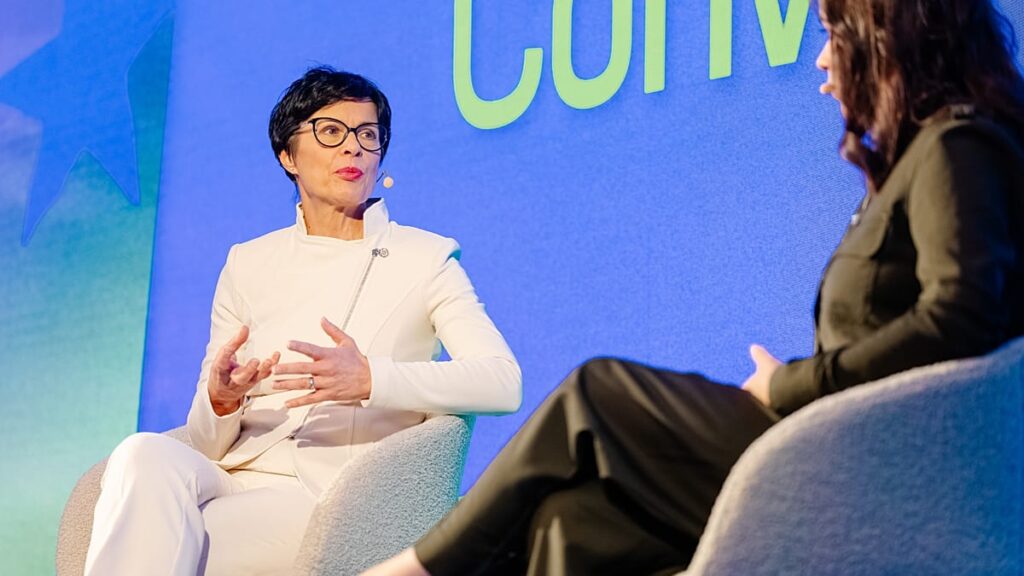Published on
Countries waiting to join the European Union must make a geopolitical decision and choose which side they are on before entering the bloc, EU Enlargement Commissioner Marta Kos told Euronews in an exclusive interview after presenting her annual review.
Her comments come after the European Commission issued an update this week on the enlargement process for candidates, including Ukraine, Moldova, and the Western Balkans.
Following the Russian invasion of Ukraine, the EU has revived the stalled efforts around enlargement, pointing to a geopolitical competition for influence in the region.
“We could see Europe united for the first time under the same home, but that also means making choices,” Kos told the Euronews Enlargement Summit held in Brussels this week.
“If you turn to Russia, or you don’t apply sanctions, that is something we cannot tolerate.”
While the EU argues it wants to make the bloc bigger, it also insists conditions must be met and new members must share fundamental views on key issues to avoid a repeat of the Hungarian experience. The country, under Prime Minister Viktor Orbán, has stepped out of the European consensus and pursues an aggressive veto policy on joint policies.
To avoid that, the Commission is exploring stronger safeguards for new members when it comes to the rule of law on the basis that “it is a concern for member states and European citizens” that candidate countries deliver on their promises once they become members, Kos said.
Two-tier membership?
Asked whether new member states could be stripped of their full voting rights during a period of probation, Kos told Euronews she does not favour two-tier membership.
“I’m strictly against that. We cannot have second-class citizens,” she added.
Kos also urged member states to give political impetus beyond the technical work to break the impasse on the process as a result of Orbán’s veto on Ukraine, which has prevented the opening of cluster negotiations — a required step — and impacted Moldova too.
In the report, the Commission pointed to Montenegro as the frontrunner country to join next, alongside Albania. It also praised Moldova’s efforts and urged Ukraine to continue its reform agenda, particularly when it comes to tackling corruption.
The Commission noted Kyiv has made significant progress in extraordinary war circumstances.
On Serbia, it noted the country had seen backsliding on the rule of law and denounced excessive use of police force to crack down on protesters. The government of Serbian President Aleksandar Vučić has faced extraordinary protests for a year following the fatal collapse of a railway station roof, which killed 16 people.
Commissioner Kos said President Vučić’s foreign policy – from Russia to sanctions – contradicts the EU’s agenda.
“The judiciary is very much under the influence of the President. Nothing happens when it comes to the EU and enlargement without the President,” she told Euronews.
“Media freedom, academic freedom, freedom to protest. There has been backsliding.”
Kos said she would continue to engage with the Serbian authorities and extend “my hand to the people of Serbia because we want Serbia in the EU, a democratic Serbia”.
The Commission made a severe assessment of Georgia’s candidacy, describing it as a candidate country “in name only” following a tumultuous parliamentary election in 2024 and a disputed result by the opposition to the ruling Georgian Dream party.
“The situation has sharply deteriorated, with serious democratic backsliding marked by a rapid erosion of the rule of law and severe restrictions on fundamental rights,” the report added.
Read the full article here

